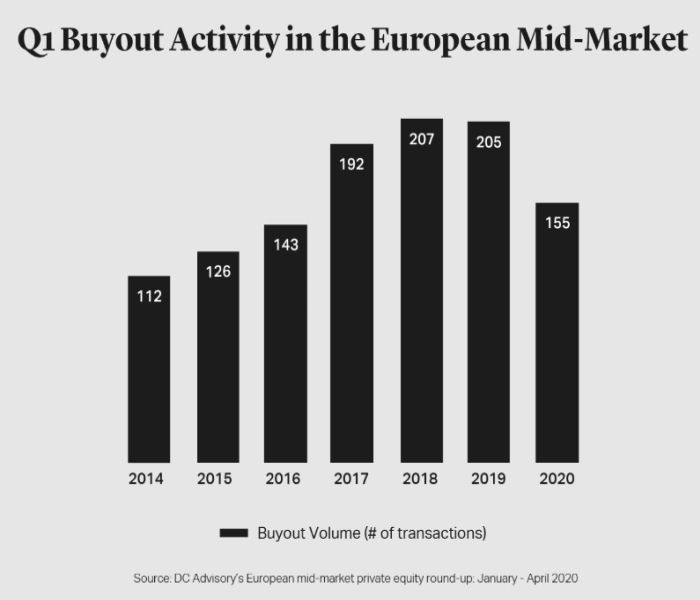Green shoots are starting to appear in the private equity deal market as governments begin to lift lockdowns and shift their focus from protecting public health to restarting economic activity. The uptick follows a marked decline in investment activity brought about by the COVID-19 pandemic. The number of private equity investments in Europe fell by 24% year-on-year in the first quarter, according to data from DC Advisory1
Markets that implemented the toughest shutdown measures – such as France and Spain – suffered some of the steepest falls. The second quarter of 2020 is likely to be just as weak. However, with considerable reserves of dry powder for investments, private equity firms are gearing up again in Europe and seeking out new investments.
In sharpest focus are those companies and industries that are well positioned to weather the challenges ahead. Technology, healthcare and telecoms are among the sectors garnering sponsors' attention. With notable exceptions, such as the KKR-led consortium's €5 billion EV offer for MasMovil 2 Spain's MasMovil to be acquired in €5bn private equity buyout.

Growth Capital Tailored to the Environment
The economic crisis stemming from the COVID-19 pandemic has affected high-quality companies and poorer performing businesses alike. As companies attempt to bounce back, many need an infusion of liquidity to restart operations and manage ongoing working capital demands. Private equity firms are increasingly eager to deploy capital, but are understandably cautious about the outlook for businesses and the economy. As a result, many are turning to growth capital opportunities, which often offer greater structuring flexibility to provide downside protection as well as upside opportunity.
In the early stages of the economic downturn, entrepreneurs and existing investors in growth companies appeared largely unwilling to accept investment terms based on conservative valuations and an uncertain market outlook. However, as the economic crisis has deepened, companies have become less confident in a quick rebound and are more willing to compromise in order to strengthen balance sheets and, in some cases, to take advantage of opportunities to fund business initiatives adapted to suit the new environment.
To see the full article click here
Originally published July 6, 2020.
To view original article, please click here.
The content of this article is intended to provide a general guide to the subject matter. Specialist advice should be sought about your specific circumstances.


